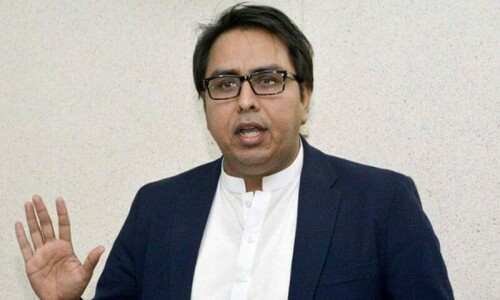LAHORE: Panelists at an international conference were unanimous that Pakistan’s larger provinces Punjab and Sindh appear to be given priority in the China-Pakistan Economic Corridor (CPEC), creating an impression of neglecting the smaller provinces in this pilot project of the One Belt One Road (OBOR) initiative.
The current structuring of the constitution, it seems, prevents the smaller provinces from challenging, directly or indirectly, the federal authority over the planning or implementation of the CPEC, was the nutshell of views expressed on Day 1 of the conference titled “The Great Transformation: the China-Pakistan Economic Corridor and Culture, Economy and Society in Pakistan” on Friday. The Lahore University of Management Sciences (LUMS) and the University of Nottingham (UK) organised the event.
“Priority is being given to Sindh and Punjab which are already more developed. There are long-standing grievances regarding the neglect of the other provinces,” said Prof Katherine Adeney (Director of the Institute of Asia & Pacific Studies, The University of Nottingham) while giving a presentation on “The Impact of CPEC on Pakistan’s Federalism”.
The session was moderated by Dr Asma Faiz and experts from the UK, Canada and Pakistan presented their papers covering various aspects of the project.
Dr Adeney said the data mentioned that the Council of Common Interests (CCI) had very limited discussions on the project. “In the CCI, a key to the 18th Amendment, extremely limited discussion was held about the CPEC initially as it was raised in only two of the eight meetings since April 2015,” she added.
While giving his input on the issue of “Provincial Inability to Confront Federal Authority over the CPEC in the Court System”, Prof Sikandar Ahmed Shah (LUMS) said the Supreme Court of Pakistan enjoys no executory authority in disputes between the provinces, or between the provinces and the federal government.
“Under Article 184 (2), the SC can only exercise declaratory jurisdiction when adjudicating these kinds of disputes, but lacks the authority to implement its judgments or entertain cases where the non-implementation of its orders thereof are alleged,” he said.
“Historically, this SC’s inability to effect or implement its judgments has, at times, led provinces to cloak their legal challenges against the federal government by indirectly facilitating individual citizens to file lawsuits against the federal government under Article 184 (3) for violations of constitutional fundamental rights of public importance – a clause under which the Supreme Court does possess executory jurisdiction,” he elaborated.
As for the CPEC passage through the disputed territory, he said he didn’t see this as an issue under the international laws. “India constructed dams like Kishan Ganga and Pakistan too did it by constructing Neelum-Jhelum. And the international donors / funding agencies too provided funds for this project,” he added.
Marium Mufti from Canada said opposition to and favour of the project by the analysts was being done on the basis of speculations and untested assumptions about the likely perceptions held by Pakistan’s elite.
Among other speakers was Saeed Shafqat from the Centre for Public Policy & Governance. He was of the view that Pakistan would be able to benefit from the CPEC if policies surrounding this project are transparent.
Saba Shahid, also from CPPG, corroborated this by saying the CPEC benefits could only be materialised if the leadership consistently promotes consensus among the provinces and ensures development will occur in an equitable manner.
Published in Dawn, April 7th, 2018













































Dear visitor, the comments section is undergoing an overhaul and will return soon.